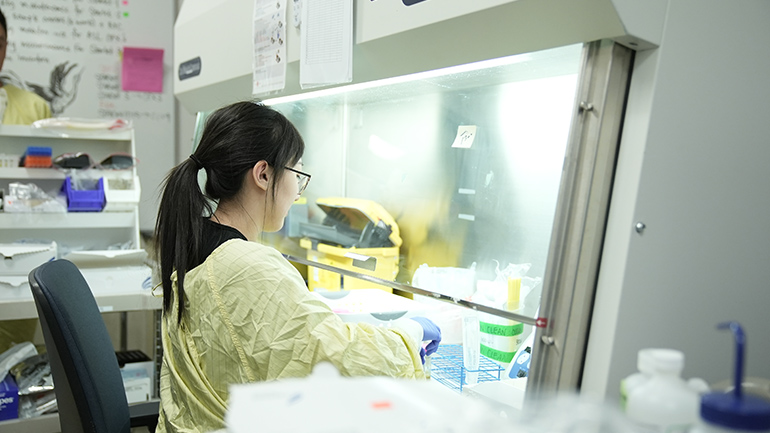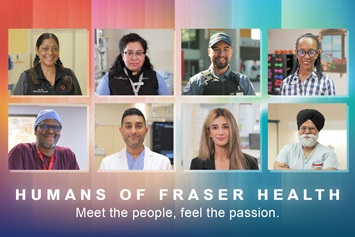
Learn how the Medical Microbiology Lab Team at Surrey Memorial Hospital and a research team in the Netherlands collaborated to improve cancer care.
Medical Microbiology lab, Surrey Memorial Hospital
Health care moved at record speed during the early stages of the COVID-19 pandemic.
Fraser Health teams sourced, ordered and delivered gowns, masks, face shields and other supplies. They transformed parking into testing stations, and people lined up for COVID-19 testing.
To facilitate quick turnaround of test results, Fraser Health purchased a backup CFX Polymerase Chain Reaction (PCR) analyzer for the medical microbiology laboratory at Surrey Memorial Hospital.
Turns out, it was the same type of analyzer required by a research team in the Netherlands.
“They were looking for a place to validate a new test for endometrial cancer and we happened to have the exact instrumentation, the time and availability, to work with the team from Leiden University,” says Jas Khattra, clinical scientist, Medical Microbiology, Fraser Health.
Once the test was validated, the research team published their findings. “QPOLE: A Quick, Simple, and Cheap Alternative for POLE Sequencing in Endometrial Cancer by Multiplex Genotyping Quantitative Polymerase Chain Reaction,” looks at a particular subset of endometrial cancer that is often diagnosed through DNA sequencing.
However, DNA sequencing is relatively expensive, time-consuming and requires specialized equipment and personnel. By running the tests through the analyzer at Surrey Memorial Hospital, the research team concluded the PCR-based testing process they developed is just as effective as DNA sequencing in determining the makeup of some endometrial cancers. Plus, it’s fast, relatively easy and cheap to administer.
“This research project brought home to us that we can advance science with the resources we already have,” says Dr. Carolyn Shiau, regional medical director, Laboratory Medicine and Pathology Program.
“The international collaboration worked out well,” adds Jas Khattra. “We were able to repurpose lab resources established through the COVID-19 pandemic to further cancer care.”
The new PCR test is already in use in the Netherlands and is available to other health providers wishing to utilize it.



